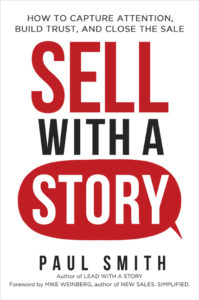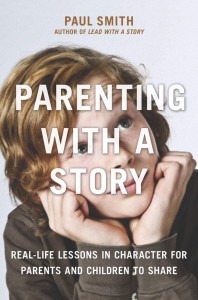Podcast: Play in new window | Download | Embed
Subscribe: RSS
Podcast (parenting-with-a-story-podcast-series): Play in new window | Download | Embed
Subscribe: RSS

What can kids and grown-ups learn from a 5-year-old boy with Down syndrome, an unsympathetic insurance company, and a leadership team willing to take matters into their own hands? A lot, it turns out, about self-empowered, and self-reliant behavior — something most parents want to see in their kids (and most executives want to see more of from everyone in their organizations). And a man who knows that better than most is Mohit Das.
Mohit was born in India, but is now a permanent resident of Singapore. In 1999 his wife gave birth to their first child, a son they named Ritvik. The couple soon learned that Ritvik had both Down syndrome and autism. They knew at that moment that much of their life would be devoted to his care.
And as difficult as it is to raise a child with both Down and autism, things got even harder. When Ritvik was five years old, he was diagnosed with leukemia, a form of cancer that affects the blood and bone marrow. Ritvik started treatment immediately, and that eventually included radiation and chemotherapy. And in cases like his, that treatment can last for years. It can also be frighteningly expensive for a young couple. Fortunately, Mohit had a professional job at a big, global company with good insurance benefits. Or at least that’s what he thought.
About a month into the treatment, he got a letter from the insurance company that said the claims for Ritvik’s treatment were being denied because the policy didn’t cover “pre-existing conditions.” That, of course, didn’t make any sense. But here was their logic: While Ritvik’s leukemia wasn’t pre-existing, his Down syndrome was. And children with Down are more likely to develop leukemia—ten to twenty times more likely, as it turns out. So even though only one in three hundred children with Down ever develops leukemia, the cause was assumed to be the same genetic makeup that resulted in his Down syndrome. Ergo, it was pre-existing.

So, Mohit and his wife started to plan for the inevitable avalanche of medical bills. Then a few weeks later, when Mohit’s boss heard about the situation, she contacted the human resources department to see if anything could be done about it. After checking the policy and appealing to the insurance carrier, the answer they got back was the same. Ritvik’s condition was preexisting and would not be covered under the policy.
For the vast majority of situations like this that play out every day all over the world, that’s where the story would end. Someone somewhere feels wronged and appeals the company policy. The policy wonks debate the situation and issue a decision. All that’s left is for the middleman, the messenger, to deliver the bad news to the employee. “I’m sorry, your appeal was denied.” Case closed.
But fortunately for Mohit, that’s not where this story ended. His boss and the human resources manager still felt he was being treated unfairly. If Ritvik had not had Down syndrome, insurance would have covered 80 percent of the cost of his leukemia treatment. But since he was a special needs child, it covered none of it. That just didn’t feel right. So they took the matter to the leadership team.
The group agreed that the insurance company’s decision was unfair. But they also knew they couldn’t do anything about that. So they decided on a course of action they could do something about. They decided to pay 80 percent of Ritvik’s medical bills as a company expense. Each month for the next two years, Mohit filled out an expense report with hospital receipts and submitted it to his company just like he did with his normal travel expenses. And the company paid every one of them.
Now, notice what went on here. This isn’t a story about some wealthy and generous executives taking pity on one of their employees and paying his medical bills out of their own pockets as a charity case. That would certainly be noble if they had. But what went on here I think is far more instructive. In this case, these people decided that if the company’s insurance carrier wouldn’t pay his bills, the company would pay them anyway as a regular cost of doing business.
I describe this as a more instructive course of action for two reasons. First, most of us don’t have a big enough bank account to simply start writing personal checks every time a problem comes up. More important, in this situation, Mohit’s boss and the HR manager did what self-reliant people do. When they failed to get the insurance company to do anything, they didn’t just give up. They asked what they could do about it themselves: what resources did they have at their disposal, what decision-making space did they have?
How easy would it have been for them to tell Mohit, “I’m sorry, we tried everything in our power. But the insurance company didn’t budge.” To which I would rhetorically reply, “Really? You’ve tried everything in your power? Everything? Maybe you’ve tried everything that somebody else can do. But what can you do?”
No matter what your situation is in life, at home or at work, you’ll have far more success by developing your own self-reliant and self-empowered behavior.
And fortunately, my rhetorical rant above is not a conversation Mohit ever had to have. Today, Ritvik is 17 years old and has been in remission from leukemia for 10 beautiful years.
As with all of these stories, I encourage you to share this with your kids, and then have a discussion about it. Here are some questions to get you started.
- Do you think it was fair of the insurance company to deny paying for Ritvik’s care?
- What do you think about Mohit’s employer’s decision to pay his medical bills anyway?
- Have you ever had someone refuse to do something for you, and then you ended up getting it done by yourself? What did you learn from that?
- What’s a situation where being told “no” should be the end of the story?
Use these links to subscribe to this PWAS podcast on iTunes or Stitcher, or Podbean.
Source: Parenting with a Story: Real-life Lessons in Character for Parents and Children to Share, by Paul Smith.
—
 Paul Smith is one of the world’s leading experts on business storytelling. He’s a keynote speaker, storytelling coach, and bestselling author of the books Lead with a Story, Parenting with a Story, and Sell with a Story.
Paul Smith is one of the world’s leading experts on business storytelling. He’s a keynote speaker, storytelling coach, and bestselling author of the books Lead with a Story, Parenting with a Story, and Sell with a Story.


 Connect with him via email here.
Connect with him via email here.
Follow him on Facebook, LinkedIn, Twitter, and Instagram.
Sign up for his newsletter here to get one new story a week delivered to your inbox.

